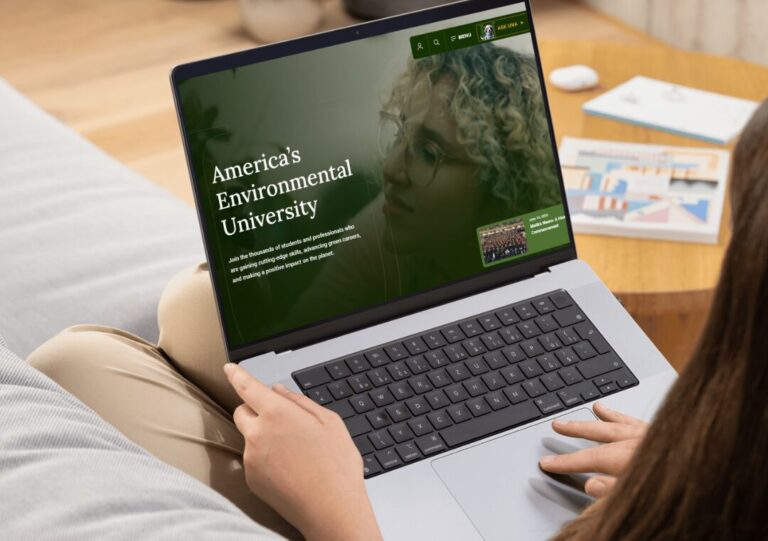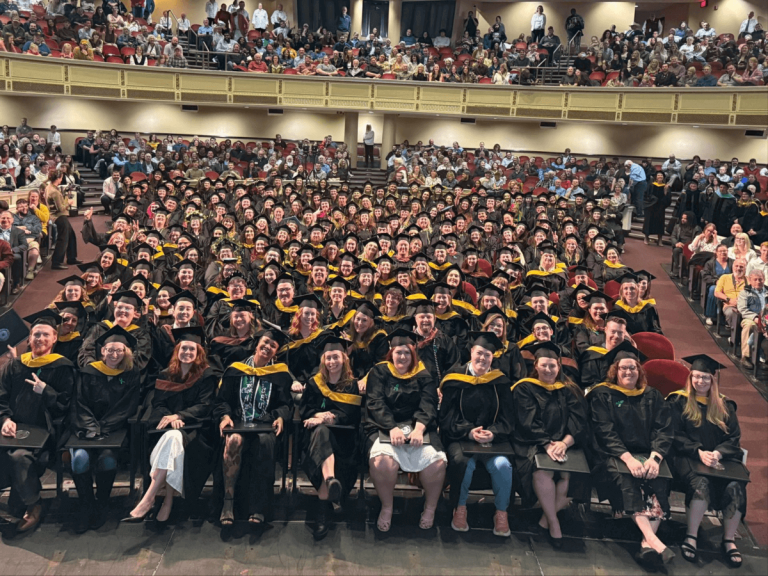On September 12, 2013, an 83-year-old man with Alzheimer’s disease from Benton, Maine disappeared from his home. At 4:22 am, the Maine Warden Service called the Unity College Search and Rescue team (UCSAR) to help find him. The team was alerted by Unity College Professor of Human Ecology Mick Womersley and responded with urgency, and once the team had gathered, departed within the hour.
Womersley has worked with Maine Search and Rescue since 1979, and has been the faculty advisor for the UCSAR team since 2000, on call six days a week. Womersley, who has had a long-standing relationship with the Maine Warden Service, is the main contact when a search situation arises. His point-of-contact position makes it convenient for the Unity College Search and Rescue team to quickly and accurately obtain all of the information they need, and also helps to ensure continuity and build personal relationships between the College and the authorities. The UCSAR team has been in existence for over 25 years, and since then has worked hard with authorities and other teams in the area to help find missing community members.
The UCSAR team’s main job is to work with other teams to find the person missing in a safe and proficient manner. They must always be prepared for the unexpected. In this particular situation, some things did not go as expected or planned. When the SAR team officers received news of the missing man it was unexpected, and they had difficulty contacting one of the officers.
“There was a slight ten minute hiccup,” said Womersley. “If you’ve got a phone chain and everything links in one chain, it only takes one broken link and the chain won’t work. The system’s designed to be able to work around temporary communication problems.” Another officer took the lead of contacting everyone as quickly as possible using the predetermined phone tree.
The team spent eight hours and covered a total distance of nine miles searching for the missing man. Though the Unity College SAR Team did not find him, they did help eliminate searching in two major areas, which indicated that the man had made it further away from his home than was previously expected. By narrowing down the land area to search, the other teams and search dogs were able to find him more quickly. All of the search teams involved worked together and communicated efficiently and through teamwork, were ultimately able to find the missing man.
The Unity College Search and Rescue team is a club, and while restrictions for student participation are very limited, there are a few necessary and important requirements. The team members must know how to find their own way (not get lost), have proper clothing and the right equipment, and everyone must carry the accurate amount of gear.
The experience gained from being a member of the Unity College SAR team ranges from helping organize run searches, to helping law enforcement with big problems, such as the actual search and rescue of a missing person. Although there is some training involved, there is no extensive prior experience needed to join the team, and anyone is welcome to do so. Students have the opportunity to work directly with authorities, and initially work on a volunteer basis, and eventually, this volunteer experience could turn into a career after college.
“You don’t have to be a game warden to be involved in search and rescue,” said Womersley. ”It’s good training for the students.”
Taking into account past patterns, Womersley predicts there will be an increase in missing people between the end of March and beginning of May. They will typically be children or older people, and most likely lost in wooded areas near towns. Unfortunately, there is not always a happy ending, so the team takes pride in their successful stories. In the case of the Benton search, everyone was proud and relieved to hear that the missing man had been found safe two days after he went missing.
“We’re part of a system, if we achieve anything it’s by working within that system with help from many other volunteers as well as the authorities,” Womersley explained. “It’s a team game.”
In recent years Unity College has gained national attention for a variety of achievements including: its focus on sustainability science, the leading-edge of 21st century ecological problem solving and the vanguard in the fight for the mitigation of global climate change; its ground-breaking “green” innovations such as the award-winning TerraHaus, the first student residence on a college or university campus built to the Passive House standard, the most energy efficient building standard in the world; and for being the first college in the United States to divest from investments in fossil fuels, igniting a growing national movement in higher education. Unity College has repeatedly received superior placement in the Washington Monthly magazine annual college rankings, including being named among the top baccalaureate colleges in 2013.
Unity College is a private college in rural Maine that provides dedicated, engaged students with a liberal arts education that emphasizes the environment and natural resources. Unity College graduates are prepared to be environmental stewards, effective leaders, and responsible citizens through active learning experiences within a supportive community.
Friday, September 27, 2013



